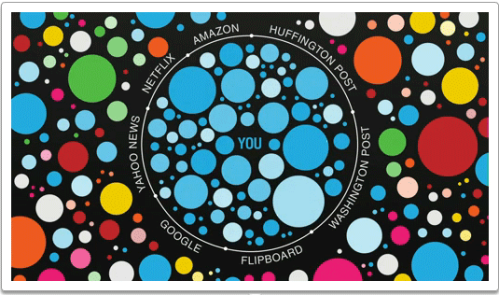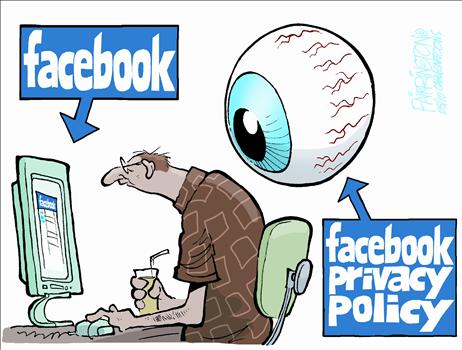
It’s all about the links.
Nudity + Bad Content Laws = Confusion. While not as popular as the equation E=MC², N+BCL=C is a useful equation for describing a recent decision out of the European Union dealing with copyright and social media.
Copyright and social media are frenemies at best. On the friend side, social media has given authors powerful ways of reaching audiences that were never previously possible. Many people make decent livings based on creating cartoons, movies, or audio files that are distributed via social media. On the enemy side, social media has wrecked havoc with authors’ abilities to control their creative works–the entire purpose of copyright. Find any image on the Internet, right click on it, and save the image. Odds are you just infringed on someone’s copyright. But whose copyright? And did you actually infringe it or is the author fine with you saving the image? What if you re-use that image on a Facebook post or blog article?
There are numerous issues with the (lack of) progression in our copyright laws and the rapid development of technology which easily infringes copyrights. One set of those issues deals with the ability to link to other content on social media. You may post a link on a blog post or on Facebook that can take a reader from your content directly to other content. What happens when the content you link violates someone’s copyright? The issue just became more complicated because of a recent decision by the Court of Justice of the European Union, the top appellate court for the EU. To understand the implications of that case, let’s dive into the details.
First, the good news: the case deals with nudity as I mentioned at the top. That’s usually good to keep people interested. In this case, the nudity at question were naked photos of TV personality Britt Dekker which were taken for publication in the Dutch version of Playboy. Eleven of those photos leaked prior to publication by being placed on a file hosting site.
GeenStijl (Dutch for “No Style”) is a website that posts stories about current events and scantily clad or naked women in varying ratios throughout the week. The day that the photos were leaked online, GreenStijl received an email with a link to the photos. Also on that day, Dutch Playboy, aware that the photos were online, attempted to take down the photos on the file-hosting site but also reached out to GeenStijl asking them not to post the photos.
GeenStijl did not respond to the request. Instead, the next day, GeenStijl published an article that included one of the leaked photos. They also included a link at the end of the article which directed users to the file-hosting site that had all of the photos. Dutch Playboy again wrote GeenStijl asking the article to be taken down. GeenStijl did not respond. But the web site that hosted the eleven leaked photos did respond to Dutch Playboy’s request and the photos were removed from that site.
One week later, Dutch Playboy sent another letter to GeenStijl demanding their original article be taken down. GeenStijl did not take down the original article, instead they published a new article talking about the legal dispute they now had with Dutch Playboy. The end of this second article contained a new link to another website that had the leaked photos. Dutch Playboy contacted the website hosting the leaked photos linked in the second article and that website also removed the leaked photos.
Ten days later, GeenStijl published another article with yet another link to a website hosting the leaked photos. Users of the GeenStijl site filled the comments section of the article with other links to the leaked photos on various hosting services.
All three of these articles were published prior to the actual issue of Dutch Playboy for which the photos were commissioned. Dutch Playboy brought a lawsuit against GeenStijl regarding these links that made their way through the court system before finally landing at the top appellate court.
Let’s get one thing clear: GeenStijl was a jerk in this case. That’s not to say they were, at the time and under their understanding, breaking the law. But they were definitely provoking a publication through their pattern of activities. And that’s okay–cases dealing with content and speech are often filled with jerks who help bush the boundary and test the limits of the legal system so that the rest of us non-jerks benefit from a greater understanding. But that may be important in understanding that the courts in this case may not have been inclined to help out a website acting like a jerk. Unfortunately, their decision may have punished a jerk while also muddying the waters for all legitimate social media users.
By the time the case reached the highest court there was a set of three questions that all dealt with whether GeenStijl had “communicated to the public” (or what we in the US call “distribution” which is one of the protections afforded an author of copyrighted material) by virtue of posting links to protected content. And here the court ultimately answered the questions with a rather convoluted statement (to be fair, it might be simpler in the original Dutch) which I will attempt to untangle. By the way, it’s important to note the court didn’t decide the case–rather they were asked to answer some questions and now the answers will be used to resolve the case. They said it will be hard for GeenStijl to overcome this test given the facts at hand, but another court will have to look at all the details. Here’s what the court said:
- To determine if a link to protected content is a communication to the public you must first determine if the link was posted by an individual.
- If the link was posted by an individual, but they did not post the link for financial gain, and they had no reason to know the linked content was protected, then it is not a communication to the public
- If the link was posted by an individual for financial gain, or by a non-individual (such as a website), then there will be a presumption that the link was known to point to protected content
- This presumption of knowledge about the protected nature of the content can be rebutted
Like I said, this probably makes more sense in Dutch. But for us English speakers, there are two really big problems for this kind of test to determine if a mere link to protected content is a legal violation.
Problem 1: The ruling sets up different tests depending on whether the links were made “with pursuit of financial gain.”
Copyright protections are supposed to protect authors so that we encourage people to become authors. So it makes sense to stop people posting copyrighted content without the permission of the author because that could financially injure them. If we are at all concerned about the next level of activity, other sites linking to the unauthorized posting of copyrighted content, then the motivation behind those links should be absolutely irrelevant.
The Court’s test here creates two different tests–one which applies to individuals who are posting links online but not for financial gain, other test for anyone posting for financial gain (which seems to include all websites or activity by more than one individual). These tests shouldn’t be relevant if we’re concerned with protecting the author.
Consider this hypothetical. I make a movie. It’s a really good movie with time travel and robots and aliens and a hilarious road trip in a spaceship and then there’s a big fight with a giant space-Octopus. I’m in the process of taking this movie to various festivals, maybe seeing if I can sell it to Netflix or some other distribution channel. Someone working at one of the festivals takes my movie and makes a copy, then posting it on YouTube. This person posted it on their own site and didn’t give it a descriptive title so nobody watches it. Then a website stumbles across the YouTube movie and posts it on their website under Movie You Must Watch Of The Day. A million people watch the movie and now all my interested distributors don’t want to talk to me because my movie is available for free.
At this point, I wouldn’t care one iota whether that website that posted the link is a commercial venture, newspaper, educational institution, or message forum. Their motivation for posting the link is irrelevant–I have been damaged. Granted, I’m also upset at the person who posted it in on YouTube in the first place, but if we are going to extend those protections to people who link to protected content why should we even consider their motivation? Setting up a separate test for sites based on whether they pursue financial gain (because in this day and age more sites pursue a profit than actually achieve it) doesn’t make sense from the perspective of preserving the incentive for authors.
Problem 2: The court presumes that websites pursuing financial gain have magical knowledge
The court’s test says that a post made for commercial gain will be presumed to know that content they are linking to is authorized or unauthorized. This presumption doesn’t make sense. From the court’s perspective, such a site should know that content is protected and should therefore have better judgement in posting links because they will know if that linked content was authorized or not.
But here’s the thing: despite certain US Supreme Court decisions hinting otherwise there is no such thing as a corporation that can exercise judgment. Corporations, websites, any organization is composed of people. So if one person can’t be presumed to know whether any piece of content on the Internet is properly authorized, how would five people running a website have that breadth of knowledge? Or even a hundred? Or a thousand? Certainly larger organizations with more resources might identify protected content and be able to ascertain if the posting was authorized, whether by virtue of more eyeballs seeing the content or being able to afford some tools to help it identify content, but none of those are perfect. Trying to substitute the pursuit of profit with having enough resources to presume knowledge of content status just doesn’t make sense in our digital world.
US law on this issue is similar but has an important difference: a website could be liable for linking to unauthorized content if it knew the content was unauthorized but there is no presumption of that knowledge simply because the website is trying to make a profit. That’s the key distinction.
Also, when the EU court made this a presumption that can be rebutted, they left open a huge loophole. Let me give you a psychic prediction on approximately 100% of the cases involving this test moving forward: the website that posted the links will say they didn’t know the content was posted without authority in an attempt to rebut the presumption. That’s 100%, plus or minus 0%. And the only websites that won’t be able to make this argument will be the ones who, like in GeenStijl’s case, were sent an actual communication by the copyright owner that the content was posted without authorization.
If that’s the court’s intent then they should have just flipped the test. Instead of presuming knowledge, make a copyright holder tell the website that posts links. If that seems like too much to ask–because why should a copyright holder have to do the extra work of telling everyone not to violate their rights–that’s because it is too much to ask. But that’s exactly what the test will ultimately end up doing.
Maybe the court just isn’t as psychic as I am.
How long this decision by the court is upheld remains to be seen. Perhaps it proves so unusable at a practical level that it is refined or reversed within the next few years. Perhaps courts try to cobble together a patchwork quilt of decisions that mostly follow this test but make it workable. But as it exists right now there are serious problems applying this test to Facebook, Twitter, Google, or any site that hosts a blog (Hey WordPress, what’s up?). And there are even bigger ramifications for those hosting platforms on trying to set up a process to handle this new test. Right now, websites that host content are accustomed to having a process where copyright onwers can assert ownership and take down offending content. Will that system need to be expanded to then impact other sites that link infringing works? Will a failure to do so make these sites contributing to the unauthorized communications to the public, allowing an additional expansion of copyright protection?
The EU’s decision is too recent to see how it will play out, but keep your eyes peeled. This could get ugly fast. Although the court may have been swayed by not wanting to let GeenStijl get away with being a jerk, they may have inadvertently overcorrected the issue and caused more problems than they solved.
 The 2019 Law & Social Media class ended back in May, but I totally forgot to share the final exam with everyone until now. My apologies, and here you go. How would you answer?
The 2019 Law & Social Media class ended back in May, but I totally forgot to share the final exam with everyone until now. My apologies, and here you go. How would you answer?








